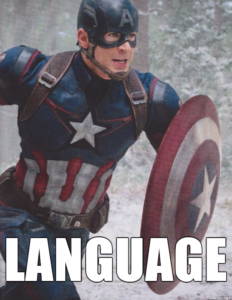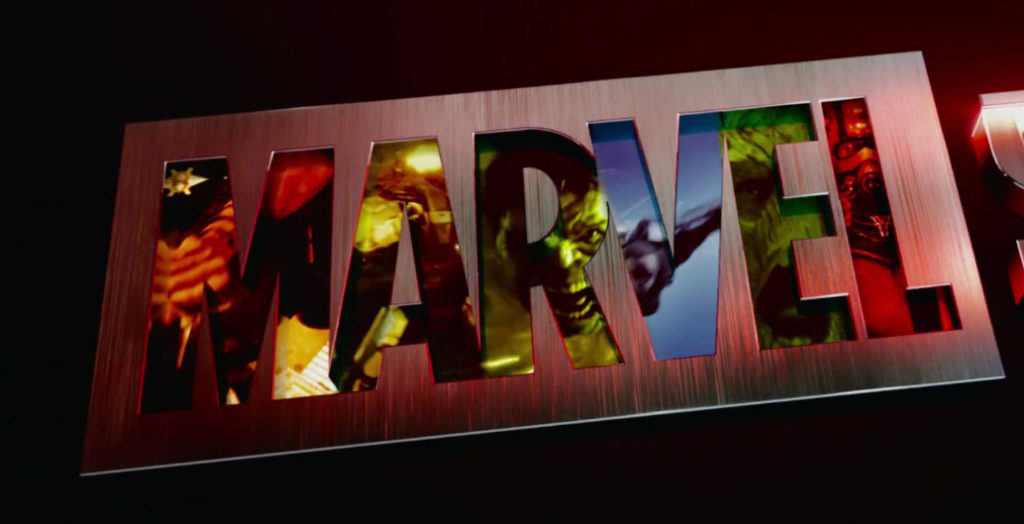Five More Ways To Fix The Marvel Cinematic Universe
Marvel Cinematic Universe Films, including the recent Guardians of the Galaxy Vol. 2, are fun diversions. Often they share provocative reflections on heroism and camaraderie, making them transcend “fun movie” expectations.
But on Monday, I pointed out five problems that, if left unfixed, could make future Marvel films into self-parodies.
In fact, my Christianity Today review summary of Vol. 2 could apply to the last four Marvel films:
When the filmmakers show discipline by focusing separately on the crew’s very human griefs, with humor that helps power these struggles, the film blasts off. But moments of uncertainty—especially when the story retreats from its own big ideas in favor of tiny ideas or distracting jokes—threaten to undermine the film’s own fun characters and original ideas.
These problems are getting easier to find in the latest Marvel films: not only Vol. 2, but Doctor Strange, Captain America: Civil War, and Ant-Man.
Here are five more issues I really hope Marvel will head off, at least before the next Avengers film(s).
6. Enough with the ‘Family 2.0 is Amazing’ themes.
 I get it. All the Marvel fans on Tumblr like to draw pictures of the Avengers living together as one big surrogate family (sometimes Chibi-fied, sometimes with Loki for some reason).
I get it. All the Marvel fans on Tumblr like to draw pictures of the Avengers living together as one big surrogate family (sometimes Chibi-fied, sometimes with Loki for some reason).
But I tired somewhat of the heavy-handed and unqualified repetition of this notion in Guardians Vol. 2. (We’re also seeing it even more often in all the movies from Disney.)
As I explain in my Vol. 2 review, the notion that “your biological family may abandon you, but you can always join a new family among quirky friends” is already cliché. (One could say this theme is also politically correct to redefine “family.” I think it’s simply a safe “moral lesson” on which to base movies that are meant to appeal to the most amounts of people.)
When will Marvel movies start challenging this notion? Captain America: Civil War came the closest. But again, by its end you I felt the story had used its supposed theme—should government regulate superheroes?—as mere pretext for yet another family-related drama.
In reality, surrogate family—your quirky friends with various powers who like the same things you like and fight with you versus bad guys—will disappoint you. In fact, they’ll often act even worse than your parents or teachers who pastors who Just Don’t Get You. Your Family 2.0 may be like the Guardians of the Galaxy. Or they may be like poor Yondu’s crew: ready to turn on you in a day. (And at that point, should you really respond like Yondu did?)
In these stories aim to show hyper-reality to any extent, they need to show this fact: Family 2.0 will fall apart and fight and reject you just like any other family. So live and work and stay a hero because you’re motivated by greater causes or moral lessons than Family.
7. Figure it out: are the films mainly for kids or adults?
 I’m fine with live-action language in live-action movies (while still believing the Bible’s warning against nasty talk in our real lives).
I’m fine with live-action language in live-action movies (while still believing the Bible’s warning against nasty talk in our real lives).
But honestly, the increase of overt Bad Words in Marvel movies does bother me.
This is getting worse. I remember when Whiplash in Iron Man 2 utters the first S-word in a Marvel movie. These then vanished until an outburst in Thor: The Dark World, and of course roared back in Guardians of the Galaxy. Then Spider-Man, whose only previous cinematic swear in Spider-Man 3 is shown in the worst possible light, exclaims “Holy —-!” at the appearance of Ant-Man’s giant form. And Vol. 2 just ups the ante even more.
Again, this is fine if the films represent some measure of reality. But the Language feels superfluous if it’s paired with lack of other real-world consequences (such as immunity to pain or permanent death). Marvel movies, are you mainly for kids or adults? Pick a primary audience and a secondary one, but maybe stop trying to be primarily for all the audiences.
8. Sometimes less is more. Stop giving away the candy store.
 I really liked Captain America: Civil War. The fact that Spider-Man actually made a cameo appearance is nothing short of amazing. (And the backstory, which involves hacking and North Korea and everything, is even better.) But at the end, I did feel a bit overwhelmed.
I really liked Captain America: Civil War. The fact that Spider-Man actually made a cameo appearance is nothing short of amazing. (And the backstory, which involves hacking and North Korea and everything, is even better.) But at the end, I did feel a bit overwhelmed.
The film well justifies and balances its inclusion of so many characters. And yet … so many.
I wanted to pause and get to know each one better. Or track Cap’s thoughts on all this.
And yet, no time. For that reason, even the mid-climactic airport fight felt a bit hollow, even while being full of awesome. It felt like Marvel gave away the candy store, showing all of its power all at once, without holding back any surprising abilities.
I felt the same in Vol. 2’s five, count ‘em, five, end-credits teasers. My theater’s audience did not respond well. They sat silent, perhaps still in grief, but mostly just—in a sugar high.
Perhaps Marvel can keep the sugar. But it needs to be paired with meatier, high “stakes.”
9. Mind your self-awareness. I don’t want to mock superheroes.

Ha, ha, let’s all laugh at Thor.
Marvel respects its heroes, even the silly ones. Yet there are a few moments when this respect breaks.
In Age of Ultron, Hawkeye notes that he’s fighting an army of giant robots with a bow and arrow. “None of this makes any sense!”
In Civil War, Spider-Man accurately notes of Cap’s shield, “That thing does not obey the laws of physics!”
Okay. I’m watching a superhero movie. It’s fantasy and often defies common sense and physics. It’s okay to lampshade this some. But Marvel, don’t go too far with this. If you don’t play it straight, we can’t either. When you deconstruct too much, the story can’t hold up.
The first film, Iron Man, tried to make all this look as realistic as possible. Don’t forget that.
Frankly, I’m afraid for Thor: Ragnarok. Someone decided they didn’t like Kenneth Branagh’s serious, pop-Shakespeare take on Thor (2011), and have since steered the God of Thunder into comedic directions. Thor is funny, but I far preferred his humor mixed with the “magic meets science” weight of Branagh’s film. The first Ragnarok trailer goes full-on Guardians of the Galaxy, complete with classic rock song and splashy ‘80s-esque colors and font choices.
No. Please don’t do this to Thor. Keep him at least partially serious. Make me wonder that there could be an Asgard out there somewhere. Make me lament its possible destruction.
10. Pull back on new super-shows; this feels like a new franchise bubble.
Finally, I’m about done with all the new Marvel shows being announced. Purely because of time constraints, I’ve already lost track of “Agents of S.H.I.E.L.D.” season 4 and will need to catch up on Netflix. Now in addition to all the X-Men shows, Marvel Studios proper has announced some show on Hulu about teen superheroes, and something called “Cloak and Dagger,” and maybe more. I don’t know. I can’t keep track. And I can’t watch them all.
All this does feel like a superhero-universe bubble. I doubt even Marvel, with its nearly 10 years of success, can sustain this for too long. Already you see some cracks: Iron Fist on Netflix has gotten pilloried, and Luke Cage’s second half lacked luster.
As for these other streaming-service shows, will they all connect with the movies? I doubt it. And I also doubt we’ll see Daredevil and Luke Cage in the films. Which is really too bad.
For my part, I’d like Marvel to freeze its story assets at the Defenders series on Netflix, “Agents of S.H.I.E.L.D.” (now renewed for season 5 with no signs of stopping) and the film series, especially now that the films will also include Spider-Man.
I’d prefer if Marvel kept at least some candy on the top shelf, maybe never to be given away. And more than ever, especially as we head into the one (or two?) Avengers: Infinity War films—which bear the threat of effectively ending the present-day MCU—I’d much prefer to see Marvel step up its serious cinematic game. Make us actually feel the weight of saving the world. Kick out the distracting jokes. Up the music game. Don’t forget smaller stories and the drama of real suffering. Dig deeper than Disney-approved “Family 2.0 is magic” themes. Please a primary audience and follow the less-is-more truth. And, for a Norse god’s sake, watch the deconstruction and show restraint with franchise-building.
Next: I suppose I ought to issue similar concerns for the DC Extended Universe.





























Brightly colored cartoon ponies have taught me that it’s FRIENDSHIP that’s magic. Twilight Sparkle didn’t become an alicorn princess because she has a cool bio family (which she does) or just a cool Family 2.0 (which she arguably does with the Mane 6 squad). She also learned the magic of friendship with side characters and the John de Lancie trickster god of chaos, too.
Yes, good thoughts all around. Unfortunately, magic friendship is only a dream. Although it is light enough for broad pop appeal, it is also cheaply visceral in a way that can be almost mean.
Good list all around, both parts.
I especially appreciate these comments: “Make us actually feel the weight of saving the world. Kick out the distracting jokes. Up the music game. Don’t forget smaller stories and the drama of real suffering. Dig deeper than Disney-approved “Family 2.0 is magic” themes. Please a primary audience and follow the less-is-more truth. And, for a Norse god’s sake, watch the deconstruction and show restraint with franchise-building.”
Unfortunately, given the general nature of the source material/subculture (and my rather cynical view of mass media), I’m not clinging to much hope, since each of these points has a strong cultural pressure against it, both in the general culture and in Hollywood culture in general (at least as I see it). The market has been very rewarding of distracting jokes – enter as evidence Guardians of the Galaxy 1 (and now 2) and Deadpool; neither mainline comics nor summer-blockbuster films are very comfortable with smaller stories or real suffering, as a general rule; I doubt Disney will ease up on its social/cultural preference any time soon; and I can’t imagine that self-restraint carries any weight among the business leaders making these films (the artistic leaders maybe, but they don’t really control what gets made).
There are some bright spots, though. The Marvel TV/Netflix series, while showing cracks, haven’t gone completely off the rails yet. The film Logan I thought was a very well-done treatment, hitting some of the very points mentioned in this essay (smaller story, drama and suffering, with real consequences). So they haven’t lost me yet. (DC is a more mixed bag, in my opinion, but back in the day, I was much more of a Marvel kid than DC anyway.)